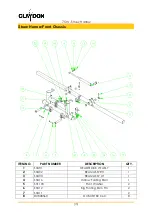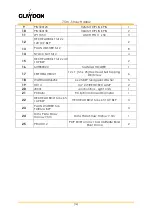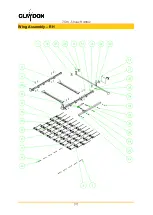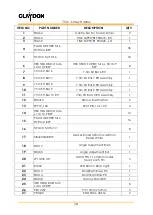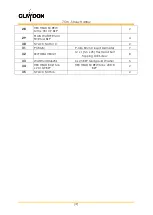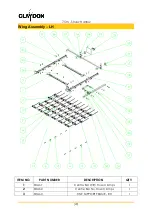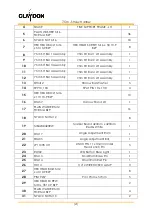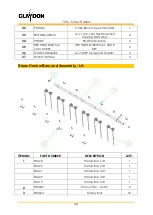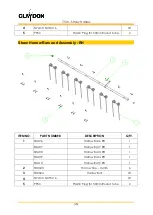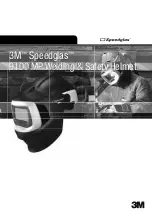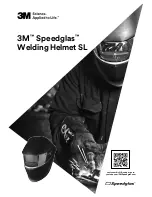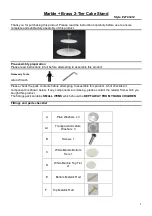
7.5m - Straw Harrow
[9]
5.0. Straw Harrow Set-up
5.1. Set Machine Level
For optimal working, the Claydon Straw Harrow must be set level from front to rear on the top
link of the tractor. Failure to achieve this will result in the harrow blocking with straw in the
front if the top link is too short or in the back if the top link is too long. To confirm the Straw
Harrow has been set level, it is advised that whilst one person is operating the machine,
another person should ensure the harrow is set parallel to the ground.
5.2. Working Height
The Claydon Straw Harrow has no depth wheels and is designed to carry its own weight on
the tines. If you are finding that the Harrow is doing more work than you would like you can
more of the harrows weight on the tractors three point linkage.
The tine angle can be altered for aggressiveness from the cab with the hydraulic rake angle
adjustment. For chopped OSR or Bean stubble the rake angle can be at maximum if so
required (this position is most aggressive and moves the most soil, Figure 7). However, on
chopped Wheat or Barley stubble the tines will need to be angled back to allow the straw to
flow through the machine without blocking up (Figure 7).
Aggressive Rake Angle – OSR or Beans
Shallow Rake Angle – Wheat or Barley
Figure 7: Example of different rake angles in various crops
If you find that the tines are not at an equal angle on both sides of the machine the following
steps should be carried out:
Firstly you should operate the tine adjustment until they reach either of their maximum
stop positions; (fully forward or fully back).
Then return the tines to the required working position, the tine angles should now be
equal on both sides.
If one side of the Harrow tines seem to be always creeping back you should check that there
are no leaks in the hydraulic system.

















